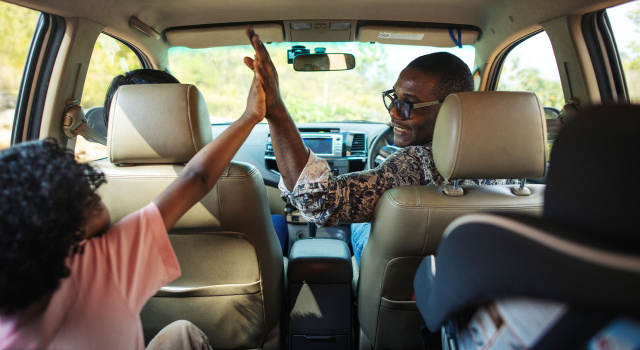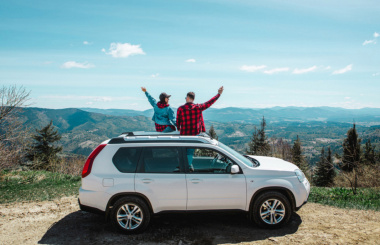Personal injury protection (PIP) insurance is a type of car insurance coverage that provides financial protection to you and your passengers in the event of a car accident, regardless of who is at fault. PIP insurance can cover a wide range of expenses related to the accident, including medical bills, lost wages, and other related expenses.
PIP insurance is often referred to as "no-fault" insurance because it provides coverage regardless of who is at fault in the accident. This means that you can file a claim with your own insurance company to receive benefits, rather than having to go through the potentially lengthy and complicated process of trying to get compensation from the other driver's insurance company.
Main Benefits of PIP Insurance
One of the main benefits of PIP insurance is that it can help you to get the financial support you need to cover your expenses and get back on your feet after an accident. This can be especially important if you have high medical bills or lost a significant amount of income as a result of the accident.
PIP insurance can also be a good option for people who live in "no-fault" states. In these states, drivers are required to have PIP coverage as part of their car insurance policy. No-fault states include:
- Florida
- Hawaii
- Kansas
- Kentucky
- Massachusetts
- Michigan
- Minnesota
- New Jersey
- New York
- North Dakota
- Pennsylvania
- Utah
In no-fault states, PIP insurance is usually required to be the primary coverage for medical expenses and lost wages resulting from a car accident. This means that your PIP insurance will pay out before any other type of insurance coverage, such as your health insurance or disability insurance.
How Does PIP Insurance Work?
PIP insurance works by providing financial coverage for a range of expenses related to a car accident. These expenses can include:
Medical Bills: PIP insurance can cover the cost of medical treatment for injuries sustained in the accident, including hospital stays, surgery, and rehabilitation.
Lost Wages: If you are unable to work as a result of the accident, PIP insurance can provide compensation for lost wages.
Funeral Expenses: In the event of a fatal car accident, PIP insurance can cover funeral expenses.
Other Related Expenses: PIP insurance can also cover a range of other expenses related to the accident, such as transportation costs for medical appointments, in-home care, and other necessary expenses.
PIP insurance typically has a limit on the amount of coverage it provides. This limit will vary depending on the specific policy and the state in which you live. In some states, you may have the option to purchase additional PIP coverage if you feel that the limits of your policy are not sufficient.
It's important to note that PIP insurance does not cover damages to your vehicle or the other driver's vehicle. For this type of coverage, you will need to have collision or property damage insurance.
When Should You Use PIP Insurance?
PIP insurance can be used in a variety of situations, including:
- Car Accidents: If you are involved in a car accident and sustain injuries, you can file a claim with your PIP insurance to cover the cost of medical treatment and lost wages.
- Pedestrian or Bicycle Accidents: If you are hit by a car while walking or cycling, your PIP insurance can cover your medical expenses and lost wages.
- Hit-and-Run Accidents: If you are involved in a hit-and-run accident and are unable to identify the other driver, your PIP insurance can provide coverage for your expenses.
- Single-car Accidents: If you are in a single-car accident, your PIP insurance can cover your expenses even if you are at fault for the accident.
How To Get PIP Insurance
PIP insurance is typically included as part of a car insurance policy. When you purchase car insurance, you will have the option to add PIP coverage to your policy.
To get PIP insurance, you will need to contact a car insurance company or agent and request a quote for a policy that includes PIP coverage. The insurance company will ask you for information about your car and your driving history and will use this information to determine the cost of your policy.
It's important to shop around and compare quotes from multiple insurance companies to find the best policy for your needs. Be sure to carefully read the policy terms and conditions to understand exactly what is covered and what is not covered under your PIP insurance.
How Much Does PIP Insurance Cost?
The cost of PIP insurance will vary depending on a number of factors, including the specific policy and the state in which you live. Some of the factors that can affect the cost of PIP insurance include:
The Amount of Coverage You Need: The more coverage you need, the more expensive your policy will be.
Your Driving History: If you have a history of accidents or traffic violations, you may be charged a higher premium for PIP insurance.
The Type Of Car You Drive: Insurance companies may charge a higher premium for PIP coverage if you drive a high-performance or luxury vehicle.
Your Age and Gender: Older drivers and male drivers may be charged a higher premium for PIP insurance.
In general, you can expect to pay a few hundred dollars per year for PIP insurance coverage. However, the actual cost will depend on your specific circumstances.
Summary
Personal injury protection (PIP) insurance is a type of car insurance coverage that provides financial protection to you and your passengers in the event of a car accident. PIP insurance can cover a wide range of expenses related to the accident, including medical bills, lost wages, and other related expenses. PIP insurance is often referred to as "no-fault" insurance because it provides coverage regardless of who is at fault in the accident. This can be especially helpful if you have high medical bills or lost a significant amount of income as a result of the accident. To get PIP insurance, you will need to contact a car insurance company or agent and request a quote for a policy that includes PIP coverage. The cost of PIP insurance will vary depending on a number of factors, including the amount of coverage you need, your driving history, and the type of car you drive.
If you're interested in getting PIP insurance, be sure to shop around and compare quotes from multiple insurance companies to find the best policy for your needs. Click on the offers below to get started.







Updated February 14, 2023